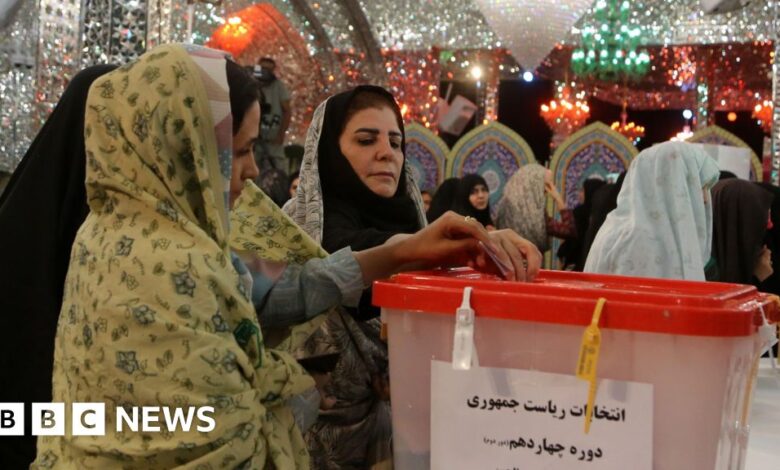New President Massoud Pezeshkian Brings Hope to Women and Children

A relatively moderate member of Iran’s parliament, Masoud Pezeshkian, has been declared Iran’s next president after defeating his hardline conservative rival by a landslide in Friday’s runoff presidential election.
The 69-year-old will replace Ebrahim Raisi, who died in a helicopter crash last month.
Mr Pezeshkian’s supporters, mostly young people, took to the streets of the capital Tehran and other cities to celebrate – even before the final results were announced, they were singing, dancing and waving the green flags that are characteristic of his campaign.
He has brought hope to some of the country’s younger generations at a time when many are despairing about their future. Some are even planning to leave the country in search of a better life elsewhere.
Representing the city of Tabriz in the Iranian parliament since 2008, he previously served as the country’s health minister.
In the 1990s, he lost his wife and one of his children in a car accident. He never remarried and raised his three other children – two boys and a girl – on his own.
His victory upset the plans of Islamist hardliners, who hoped to install another conservative to replace Raisi and – along with supreme leader Ayatollah Ali Khamenei – control all levers of power in Iran.
At a polling station in Tehran, Fatemeh, 48, told AFP news agency that she voted for the moderate candidate because “his priorities include the rights of women and young people”.
“I know Pezeshkian will be an outgoing president, but he is still better than a hardliner,” Afarin, 37, who owns a beauty salon in Isfahan, told Reuters.
Many voters boycotted the first round of voting last week, angry at domestic repression and international conflict that has left Iran under more sanctions and growing poverty.
They were also frustrated by the lack of choice in the election. Of the six candidates allowed to run, five were hardline Muslims.
And there is a sense of despair that – with Khamenei having the final say over government policy – the chances of real change are slim.
One of the people who refused to vote was Azad, a 35-year-old human resources manager and activist in Tehran who was imprisoned twice for criticizing the Iranian government.
Azad, whose name has been changed for her safety, said she was still traumatized by being held incommunicado and enduring grueling interrogations.
She told the BBC that despite Mr Pezeshkian’s victory, the supreme leader remained “in charge” in Iran.
“The reformists have had 45 years and they have made no effort to reform the political structure,” she said, referring to the time since the Islamic Revolution.
But in Friday’s runoff election, some appeared to have changed their minds and went to the polls, many voting tactically for Mr Pezeshkian to prevent Mr Jalili’s victory.
He will reaffirm many policies that have caused domestic and international discontent, such as Iran’s controversial policy. moral patrol.
Mr Jalili took an anti-Western stance during his campaign and criticised the 2015 deal that saw Iran curb its nuclear programme in exchange for sanctions relief. Voters fear that if he wins, his presidency could antagonise the US and its regional allies – and worsen Iran’s economic situation.
In contrast, Mr Pezeshkian called for “constructive relations” with Western nations and a revival of the nuclear deal to “bring Iran out of its isolation”. He said Iran’s economy could not function under the devastating sanctions currently imposed on the country.
Mr Jalili’s victory also signals a shift toward a potentially harsher domestic policy, reinforcing the requirement for women to wear headscarves.
Mr Pezeshkian opposes the use of force to enforce mandatory hijab laws – a major issue in recent years.
He used to lament death in police custody of Mahsa Amini, a young woman arrested for allegedly breaking the law. Her death sparked massive nationwide protests unlike any the country had ever seen.
The president-elect is expected to take power in just a few days to fill the void in government left by Raisi’s sudden death.
As well as pushing for a restoration of the nuclear deal and an easing of sanctions, Mr Pezeshkian has promised to see Iran join international banking conventions. Conservatives have been reluctant to do so, depriving Iran of normal banking relationships with other countries.
He also said he would lift Iran’s widespread internet censorship.
But it remains unclear how much political freedom he will be given to bring about meaningful change.
Dr Sanam Vakil, director of the Middle East and North Africa Programme at Chatham House in London, said he would have to “work with the entire conservative-dominated Iranian system to try to build support” for his more moderate agenda.
“He won’t have much independent room to manoeuvre except in the economic portfolio which is entirely in the hands of the president,” Dr Vakil told the BBC, adding that even there, “meaningful progress can only be achieved through negotiations with the US to get sanctions relief”.




